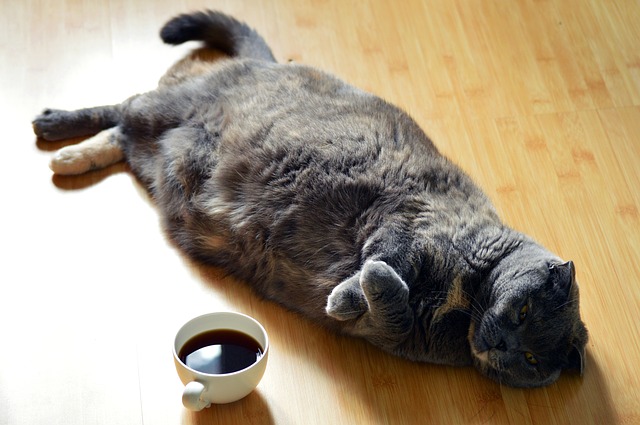It’s not only Americans who are suffering from obesity problems; apparently, so are the nation’s pets.
A report titled Banfield Pet Hospitals 2017 State of Pet Health found that one in three pets that visited Banfield pet centers in 2016 was overweight or obese, USA Today reports. The yearly report publishes data on the health habits of over 2.5 million dogs and 500,000 cats that visit Banfield facilities across the country.
Topping the list was Minnesota, with a whopping 41% of overweight dogs and 46% of overweight cats. Following the North Star State for heaviest dogs are Nebraska, Michigan, Idaho, Nevada, New Mexico, Washington, Utah, Indiana and Oregon. For states with the fattest cats, Nebraska still follows Minnesota, then Iowa, Idaho, Delaware, Michigan, Nevada, Kansas, Utah and New Mexico.
There are no Banfield facilities in Alaska, Hawaii, Maine, North Dakota, South Dakota, Vermont, West Virginia and Wyoming, which is a limitation of the report, The Huffington Post reports.
Based on the existing data, overall, 33% of cats and 30% of dogs brought into Banfield clinics were overweight. This doesn’t follow the trend for overweight people, which lists Louisiana, Alabama, Arkansas and Mississippi as the top states for human obesity.
Kirk Breuninger, a veterinary research associate at Banfield, said that this trend began about five years ago.
More than 20 disease conditions have been linked with pets being overweight,
he said. “While some may say, ‘My pet looks cute being pudgy or plump,’ ultimately carrying those extra pounds contributes to exasperating these diseases.”
This trend is a burden on pet owners, the report further found. Over a period of four years, owners of overweight dogs spent 17% more on healthcare costs, and owners of overweight cats spent 36% more on the same, compared to owners of healthy pets.
Breuninger said that many pet owners don’t even know that their pets are overweight. There are some visual cues, such as being able to see a dog’s or cat’s waist and feel their ribs. A veterinarian would be able to determine accurately if a pet has weight issues, and help in putting together a diet and exercise plan, he added.
“Even just going a few extra blocks can have a big difference and if you think about yourself, if you don’t exercise enough feel sluggish and not at your best and we have seen pets likely feel the same way too,” Breuninger said.
























